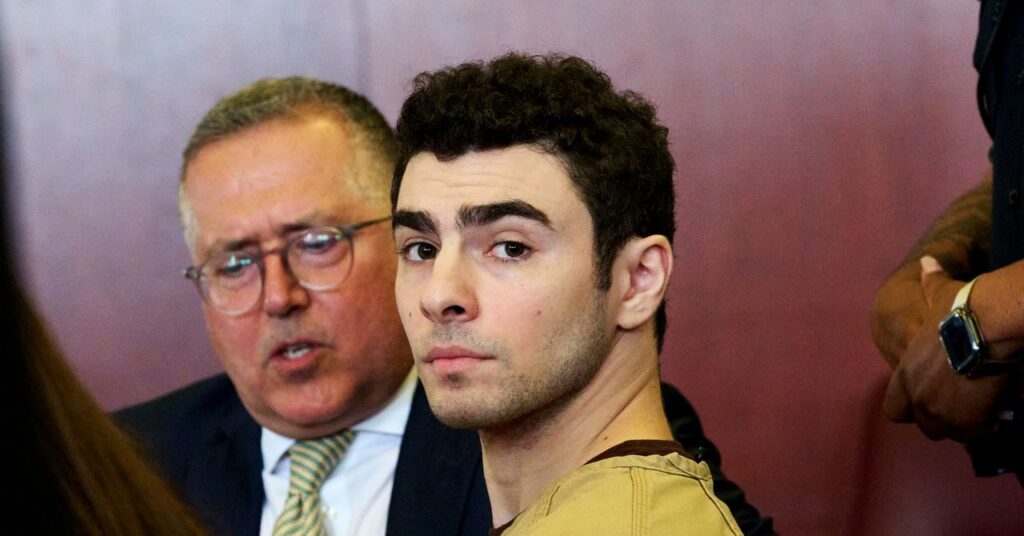Last February, Emily Whittemore stepped onto the stage at Los Angeles’ Jumbo’s Clown Room in a pair of eight-inch Pleaser heels, a black string bikini, and an extra-large T-shirt with the face of Luigi Mangione printed across it.
She writhed and wiggled on the iconic strip bar’s floor to System of a Down’s “Prison Song” as onlookers cheered, and eventually lifted the shirt up to her head and wrapped Mangione’s mug shot around her face. “I was like, ‘Ya’ll don’t even need to look at me, just pretend I’m him,’” Whittemore recalls.
Then she ripped the shirt off, threw it on the ground, and sat down, “pretending to ride” it, she says. The audience of mostly women went wild, chanting “free Luigi” while Whittemore scooped up wads of cash. Even after her performance, Whittemore kept the Mangione hype flowing: “I would go to every single person that I would see, any young group of girls at work who’d come in and be like, ‘Hey, have y’all seen the guy who shot the CEO? He’s so hot, right?’”
Whittemore, of course, was referring to the 27-year-old data engineer accused of shooting and killing the CEO of UnitedHealthcare, Brian Thompson, outside a Hilton hotel in midtown Manhattan last December. The crime sparked a nationwide manhunt, which led to Mangione’s arrest five days later at a McDonald’s in central Pennsylvania. He has since been charged with more than a dozen state and federal offenses, including second-degree murder and stalking, to which he has pleaded not guilty. Federal prosecutors are seeking the death penalty.
Since his arrest, Mangione’s case has garnered worldwide attention and spawned a conglomerate of passionate supporters with opposing agendas. Some of these factions see Mangione’s alleged crime as a stand against corporate greed, corrupt health care systems, and one-percenters. Others find that stance offensive, believing Mangione is entirely innocent and spending their days clapping back at any insinuation of his guilt on the internet. Yet, the most widely recognized supporters in the public eye are the “thirsters,” as they are fittingly nicknamed.
Once surveillance photos of Mangione’s fantasy novel looks—his dense black eyebrows, sculpted jaw, and ear-to-ear smile—emerged on the internet, he became an instant heartthrob for the digital age, with fan fiction detailing steamy bedroom scenes about him and his female friends, and T-shirts, hoodies, and even bikinis featuring pictures of Mangione springing up across Etsy and other online shops. (Etsy says it has since removed that merch.) In June, Luigi: The Musical, a satire in which the actor playing Mangione does a striptease, opened to a sold-out audience in San Francisco.

